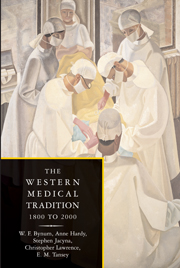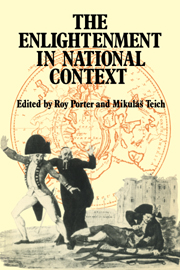The Scientific Revolution in National Context
The "Scientific Revolution" of the sixteenth and seventeenth centuries continues to command attention in historical debate. What was its nature? How did it develop? Controversy still rages about the extent to which it was essentially a "revolution of the mind," or how far it must also be explained by wider considerations--social, economic, political and cultural. In this volume, leading scholars of early modern science argue the importance of specifically national contexts for understanding the transformation in natural philosophy between Copernicus and Newton. Distinct political, religious, cultural and linguistic formations shaped scientific interests and concerns differently in Italy, France, Britain, the Germanies, Spain, and so on, and explain different levels of scientific intensity. Questions of institutional development, and of the transmission of scientific ideas, are also addressed. The emphasis on national determinants makes this volume an entirely original contribution to the study of the scientific revolution.
- A major collection which enhances our understanding of the 'Scientific Revolution' by probing its national dimensions and differences
- A further volume in the sequence edited by Porter and Teich, following on from Fin-de-Siècle and its Legacy and The Renaissance in National Context
Reviews & endorsements
"...I would recommend it for its attempt to address the interplay between the cosmopolitan nature of the scientific enterprise and specific national contexts." Mordechai Feingold, Science
"The essays argue for two competing models of scientific culture: the humanist republic of letters in which natural philosophers made their reputation and the local world in whcih they made their fortunes....the contributors to this volume...open up many interesting avenues worthy of further exploration regarding the relationship between ideas and the context in which they develop." Paula Findlen, Sixteenth Century Journal
"The "Scientific Revolution" of the sixteenth and seventeenth centuries continues to command attention in historical debate. What was its nature? How did it develop....leading scholars of early modern science argue the importance of specifically national contexts for understanding the transformation in natural philosophy between Copernicus and Newton....The emphasis on national determinants makes this volume an entirely original contribution to the study of the scientific revolution." Bulletin of Science, Technology & Society
"...The essays in general are very good indeed, and the endnotes are a bibliographic goldmine. This volujme succeeds in drawing our attention to the importance of national factors in the development of science and as a result adds considerable richness and complexity to the term "Scientific Revolution." Jim Llana, Renaissance Quarterly
Product details
September 1992Paperback
9780521396998
320 pages
227 × 151 × 17 mm
0.585kg
Available
Table of Contents
- Notes on contributors
- Acknowledgements
- Introduction
- 1. Scientific revolution, social bricolage and etiquette Mario Biagioli
- 2. The scientific revolution in France L. W. B. Brockliss
- 3. The scientific revolution in the German nations William Clark
- 4. The new philosophy in the low countries Harold J. Cook
- 5. The scientific revolution in Poland Jerzy Dobrzycki
- 6. The scientific revolution in Spain and Portugal David Goodman
- 7. The scientific revolution in England John Henry
- 8. The scientific revolution in Bohemia Josef Smolka
- 9. Instituting science in Sweden Sven Widmalm
- 10. The scientific revolution in Scotland Paul Wood
- Index.

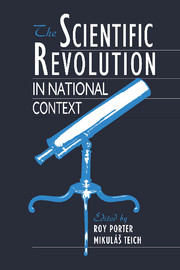
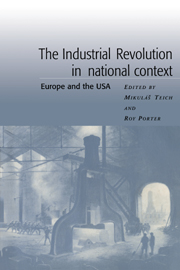
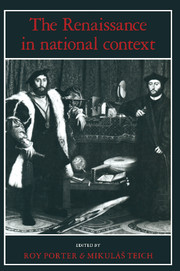
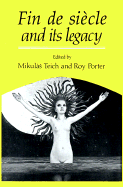



.jpg)
.jpg)
